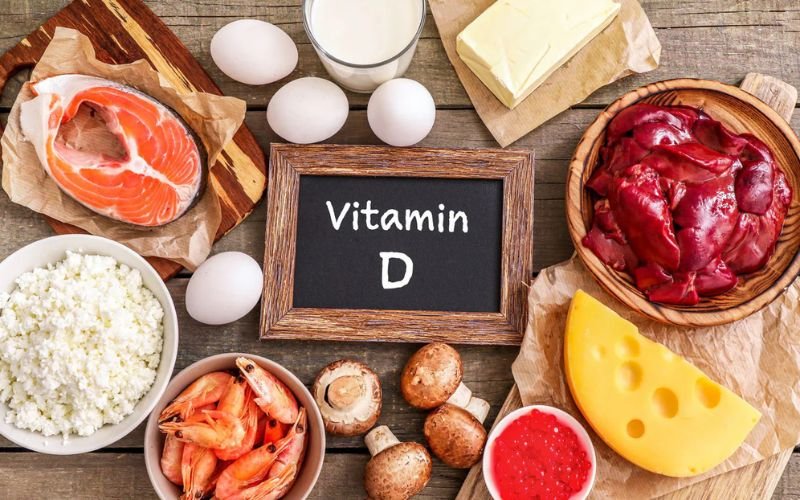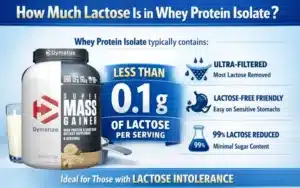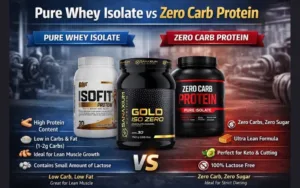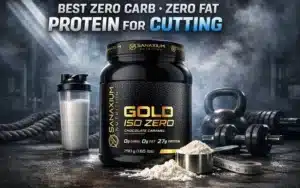No products in the cart.
Return To ShopBest Sources of Vitamin Supplements: Essential Nutrients Guide
In today’s fast-paced world, vitamin supplements have become indispensable for many of us. Whether it’s the increasing difficulty of getting all essential nutrients from our diets or the growing awareness of specific health needs, supplements often fill the gap. But with so many options on the market, how do you navigate this overwhelming landscape?
Understanding the best sources of vitamin supplements is the first step toward making informed decisions for your health and well-being.
Natural vs. Synthetic Vitamins: What’s the Difference?
When diving into vitamin supplements, one of the key debates is between natural and synthetic sources.
Natural vitamins come from whole food sources, while synthetic versions are manufactured in laboratories.
- Many argue that natural vitamins are more easily absorbed by the body, while others maintain that synthetic supplements offer the same benefits.
- However, the truth is more nuanced. For some vitamins, the body doesn’t differentiate much between the two; for others, the difference in bioavailability is significant.
Top Sources of Vitamin A Supplements
Vitamin A is crucial for maintaining healthy vision, skin, and immune function.
- One of the best sources of vitamin A in supplement form comes from fish liver oil, particularly cod liver oil. It’s a potent, bioavailable source of retinol, the active form of vitamin A.
- For those who prefer plant-based sources, beta-carotene supplements, derived from carrots and sweet potatoes, are a solid alternative.
- When choosing a vitamin A supplement, it’s essential to balance retinol and beta-carotene to avoid toxicity, as vitamin A is fat-soluble and can accumulate in the body.
Vitamin C: The Powerhouse of Immunity
Discover how Vitamin C supercharges your immune system and keeps illnesses at bay.
- Natural sources of vitamin C include acerola cherries, camu camu berries, and rose hips, all of which are extremely high in this vital nutrient.
- Synthetic ascorbic acid is also effective, but many prefer whole-food-based supplements that offer synergistic benefits from accompanying plant compounds.
Beyond immunity, vitamin C supports skin health by aiding collagen production, making it a versatile addition to your daily regimen.
Finding the Right Vitamin D Supplements for Bone Health

Vitamin D, often referred to as the “sunshine vitamin,” is vital for calcium absorption and bone health. Unfortunately, many people are deficient in vitamin D due to insufficient sun exposure, especially in colder climates.
For vegans, vitamin D2 (ergocalciferol) derived from mushrooms or lichen is an option, although D3 (cholecalciferol) from animal sources is typically more effective at raising vitamin D levels in the body. Always opt for vitamin D supplements combined with vitamin K2 for optimal bone health.
B Vitamins: Fueling Energy and Cognitive Function
The B-complex vitamins—B1 (thiamine), B2 (riboflavin), B6 (pyridoxine), B12 (cobalamin), and others—are essential for converting food into energy and supporting brain function.
Vitamin B12 is particularly important for vegetarians and vegans, as it’s primarily found in animal products. Methylcobalamin, the bioactive form of B12, is considered one of the best sources in supplement form, as it’s easily absorbed by the body.
Other B vitamins are abundant in whole-food supplements made from yeast, leafy greens, and whole grains. Incorporating a B-complex supplement into your daily routine can help combat fatigue and improve mental clarity.
The Importance of Vitamin E for Skin and Hair
- Vitamin E is a popular supplement for skin and hair health. Natural tocopherols are the most effective sources.
- These are often derived from sunflower seeds, almonds, and wheat germ oil. Synthetic vitamin E (dl-alpha-tocopherol) is less potent.
- It’s better to choose products labeled “d-alpha-tocopherol.” Vitamin E also benefits heart health. It prevents the oxidation of LDL cholesterol, which is harmful.
Vitamin K: The Overlooked Nutrient for Bone and Heart Health
Vitamin K is often overshadowed by more popular nutrients, yet it plays a critical role in both bone metabolism and cardiovascular health. It ensures that calcium is directed to bones and teeth where it’s needed, and not deposited in arteries where it can cause harm.
Types of Vitamin K and Supplement Sources:
- Vitamin K1 (phylloquinone) is found in leafy greens like spinach, kale, and broccoli.
- Vitamin K2 (menaquinone) is present in fermented foods like natto, cheese, and some meats.
When choosing supplements, Vitamin K2 (especially MK-7) is more bioavailable and stays in the body longer. It is particularly beneficial when paired with Vitamin D3 to support optimal bone density and prevent arterial calcification.
Iron Supplements: Addressing Common Deficiencies
Iron is essential for producing hemoglobin, the protein in red blood cells that transports oxygen throughout the body. Many individuals, especially menstruating women and vegetarians, may fall short of daily iron needs, resulting in fatigue and weakened immunity.
Top Sources and Supplementation Tips:
- Heme iron, found in red meat and poultry, is more easily absorbed than non-heme iron, which comes from plant-based foods like lentils, tofu, and spinach.
- Vitamin C enhances iron absorption, so it’s wise to pair iron supplements with citrus or other vitamin C-rich foods.
- Avoid taking iron with calcium or dairy, as these can interfere with absorption.
Look for iron supplements like ferrous bisglycinate or ferrous sulfate for maximum efficacy.
Magnesium: Supporting Muscle and Nerve Function
Magnesium is involved in over 300 biochemical reactions in the body. It supports muscle function, nerve signaling, blood pressure regulation, and quality sleep.
Best Sources and Supplement Forms:
- Natural sources include almonds, pumpkin seeds, whole grains, and leafy vegetables.
- Magnesium supplements such as magnesium glycinate and magnesium citrate are often recommended due to their high bioavailability and gentle effects on the stomach.
This nutrient is especially useful for those dealing with stress, insomnia, or muscle cramps.
Zinc: Essential for Immune Function and Wound Healing
Zinc is a trace mineral that plays a pivotal role in immune function, wound healing, and even taste perception. It’s particularly important during cold and flu season or for individuals recovering from illness or surgery.
Effective Sources and Supplement Options:
- Zinc-rich foods include oysters, red meat, chickpeas, and pumpkin seeds.
- Supplements come in forms like zinc gluconate, zinc picolinate, or zinc citrate, all of which are effective and well-absorbed.
Zinc supplements can help shorten the duration of colds and support skin healing.
Omega-3 Fatty Acids: Heart and Brain Health
Omega-3 fatty acids are essential fats your body cannot produce on its own. They support cardiovascular function, reduce inflammation, and contribute to cognitive well-being.
Where to Find Omega-3s:
- DHA and EPA, the most potent omega-3s, are found in fatty fish like salmon, sardines, and mackerel.
- For vegetarians or those allergic to fish, algal oil provides a plant-based source of DHA.
Fish oil and omega-3 supplements with high EPA/DHA ratios are ideal for individuals with cardiovascular risk or cognitive health concerns.
Personalized Supplementation: Tailoring to Individual Needs

No single supplement routine works for everyone. Your age, gender, lifestyle, diet, and health status should all influence which nutrients you prioritize.
Steps for Personalization:
- Blood testing or nutrition assessments can identify deficiencies.
- A consultation with a registered dietitian or healthcare provider can help build a targeted supplement plan.
- Tailored multivitamins or custom supplement packs are increasingly available to address your specific needs.
A personalized approach ensures your supplement regimen works efficiently and safely for your unique body.
Choosing High-Quality Multivitamins: What to Look For
With the plethora of multivitamins available on the market, choosing the right vitamin can feel daunting. High-quality multivitamins should contain bioavailable forms of vitamins, such as methylfolate instead of folic acid or methylcobalamin instead of cyanocobalamin. Whole-food-based multivitamins, which derive nutrients from organic fruits and vegetables, are often superior to synthetic versions.
Look for multivitamins that are free from unnecessary fillers, binders, and artificial additives. Ensuring that the product has been third-party tested for purity and potency is also crucial for getting a supplement that delivers on its promises.
Conclusion:
No two individuals have the same nutritional needs, which is why a personalized approach to vitamin supplementation is essential. Whether you’re looking to boost immunity, enhance cognitive function, or support bone health, knowing the best sources of vitamin supplements allows you to tailor your regimen to your specific goals. With careful selection and informed choices, supplements can be a powerful ally in maintaining optimal health in today’s demanding world.









Add comment